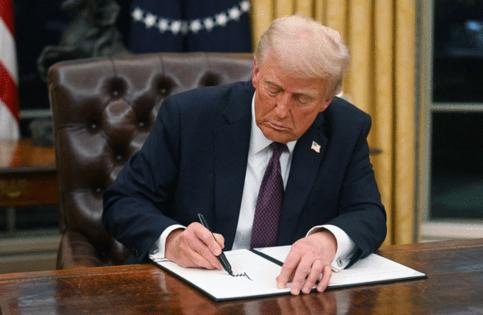The Trump administration is ending TPS for several countries. What that means
Published in News & Features
RALEIGH, N.C. — As the Trump administration pursues its goal of mass deportations, immigration officials are moving quickly to end temporary legal authorizations that were granted to foreign nationals who came to the United States from countries impacted by wars or natural disasters.
That designation, known as Temporary Protected Status, or TPS, was created by Congress through the Immigration Act of 1990.
Under TPS, foreign nationals of a designated country can legally live and work in the U.S. and are protected from deportation. TPS doesn’t lead to lawful permanent resident status or any other immigration status, according to U.S. Citizenship and Immigration Services, and since it is temporary, it must be renewed.
Since President Donald Trump returned to office in January, his administration has “aggressively sought to remove the protection, thus making more people eligible for removal,” The Associated Press reported last month.
In July, the Trump administration announced it was ending TPS for people from Honduras. The decision has received renewed attention in North Carolina ahead of the Sept. 8 deadline, when TPS will expire for 51,000 Hondurans living in the U.S. Activists and students at Duke University have come together in support of longtime university bus driver and employee Luis Alonso Juárez, who has been living in the country since 1995 — and lawfully since 1999. He is now slated to lose his legal status on Monday.
What is Temporary Protected Status?
TPS is a designation that can be made by the Department of Homeland Security that allows foreign nationals of certain countries to temporarily live and work in the U.S.
The program exists to serve foreign nationals living in the U.S. who can’t safely return to their home countries because of an ongoing armed conflict, a natural disaster or an epidemic, or other “extraordinary and temporary conditions.”
People who are approved for TPS are temporarily exempt from being removed from the U.S. and can receive legal authorization to work here. They can also apply for travel authorization.
Once someone is granted TPS, they cannot be detained by DHS on the basis of their immigration status.
Who is eligible for TPS?
To qualify for TPS, you need to be a national of a country designated under the program, and you need to meet requirements for maintaining a continuous physical presence and residence in the U.S. that are tied to when the most recent designation of your home country was issued.
Disqualifications for TPS include being convicted of a felony or at least two misdemeanors, or failing to meet registration and renewal requirements.
Which countries are currently designated and how many people are covered?
TPS for three countries whose nationals have been allowed to live and work in the U.S. is expiring next week: Honduras and Nicaragua (Sept. 8) and Venezuela (Sept. 10).
A total of 11 other countries are currently designated for TPS until later this year or next year:
•Myanmar
•El Salvador
•Ethiopia
•Haiti
•Lebanon
•Somalia
•South Sudan
•Sudan
•Syria
•Ukraine
•Yemen
According to DHS, the secretary of homeland security is required to review the conditions in a designated country and determine if they warrant allowing TPS to be extended, at least 60 days before an active designation expires.
A report published by the Congressional Research Service last week showed that as of March 31, there were nearly 1.3 million nationals from then-designated countries that were approved to live in the U.S. under TPS.
The countries with the highest number of TPS recipients were Venezuela (605,015); Haiti (330,735); El Salvador (170,125); and Ukraine (101,150).
What has the Trump administration said about TPS?
The Trump administration, in recent months, has ended TPS for several countries including Honduras, Nicaragua, Nepal, Cameroon, Afghanistan and Venezuela. TPS has also been terminated for Haiti, but that decision is currently being challenged in court.
After a federal appeals court last month allowed its separate decisions to end the designations for Honduras, Nicaragua and Nepal to move forward, following a lower court ruling that would have postponed the terminations, DHS touted what it called a “significant legal victory.”
“Temporary Protected Status was always meant to be just that: Temporary,” DHS spokeswoman Tricia McLaughlin said at the time. “TPS was never meant to be a de facto asylum system, yet that is how previous administrations have used it for decades while allowing hundreds of thousands of foreigners into the country without proper vetting. This unanimous decision will help restore integrity to our immigration system to keep our homeland and its people safe.”
©2025 The News & Observer. Visit at newsobserver.com. Distributed at Tribune Content Agency, LLC.







Comments